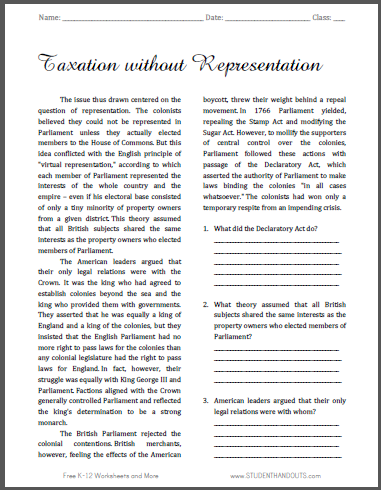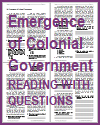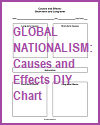Taxation Without Representation |
|
The issue thus drawn centered on the question of
representation. The colonists believed they could not be
represented in Parliament unless they actually elected members
to the House of Commons. But this idea conflicted with the
English principle of "virtual representation," according to
which each member of Parliament represented the interests of the
whole country and the empire – even if his electoral base
consisted of only a tiny minority of property owners from a
given district. This theory assumed that all British
subjects shared the same interests as the property owners who
elected members of Parliament.
The British Parliament rejected the colonial contentions.
British merchants, however, feeling the effects of the American
boycott, threw their weight behind a repeal movement. In
1766 Parliament yielded, repealing the Stamp Act and modifying
the Sugar Act. However, to mollify the supporters of central
control over the colonies, Parliament followed these actions
with passage of the Declaratory Act, which asserted the
authority of Parliament to make laws binding the colonies "in
all cases whatsoever." The colonists had won only a
temporary respite from an impending crisis. Questions with answers in bold: 1. What did the Declaratory Act do? |
Click here to print. |
 |
|---|
Text courtesy of the U.S. State Department,
Bureau of International Information Programs, 2005 |


 The American leaders argued that their only legal relations
were with the Crown. It was the king who had agreed to establish
colonies beyond the sea and the king who provided them with
governments. They asserted that he was equally a king of England
and a king of the colonies, but they insisted that the English
Parliament had no more right to pass laws for the colonies than
any colonial legislature had the right to pass laws for England.
In fact, however, their struggle was equally with King George
III and Parliament. Factions aligned with the Crown
generally controlled Parliament and reflected the king's
determination to be a strong monarch.
The American leaders argued that their only legal relations
were with the Crown. It was the king who had agreed to establish
colonies beyond the sea and the king who provided them with
governments. They asserted that he was equally a king of England
and a king of the colonies, but they insisted that the English
Parliament had no more right to pass laws for the colonies than
any colonial legislature had the right to pass laws for England.
In fact, however, their struggle was equally with King George
III and Parliament. Factions aligned with the Crown
generally controlled Parliament and reflected the king's
determination to be a strong monarch.








